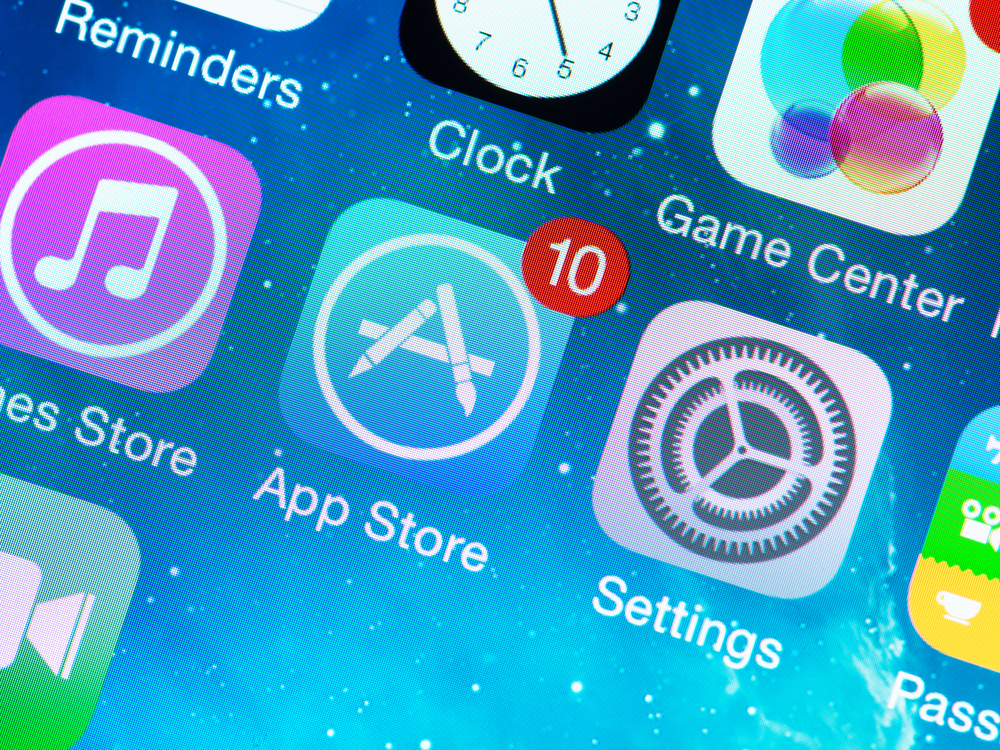

The bitter relationship between Apple and one of the world’s biggest game developers (Epic Games) has become even more toxic, after the latter upped its fight against the iPhone maker.
Epic Games has filed an antitrust complaint against Apple with the European Commission, the antitrust body and executive arm of the European Union.
This is an escalation of Epic’s fight against Apple and the 30 percent commission for purchases it charges big firms on its App Store.
“Epic Games today announced it has filed an antitrust complaint against Apple in the European Union (‘EU’), expanding the company’s fight to advance fairer digital platform practices for developers and consumers,” announced the US games developer.
“The complaint, filed with the European Commission’s Directorate-General for Competition, alleges that through a series of carefully designed anti-competitive restrictions, Apple has not just harmed but completely eliminated competition in app distribution and payment processes,” Epic alleged. “Apple uses its control of the iOS ecosystem to benefit itself while blocking competitors and its conduct is an abuse of a dominant position and in breach of EU competition law.”
It said the complaint runs alongside existing legal processes already underway in both the US and Australia, as well as Epic’s recent filing before the UK’s Competition Appeal Tribunal.
“What’s at stake here is the very future of mobile platforms.” said Epic Games founder and CEO Tim Sweeney. “Consumers have the right to install apps from sources of their choosing and developers have the right to compete in a fair marketplace.”
“We will not stand idly by and allow Apple to use its platform dominance to control what should be a level digital playing field,” said Sweeney. “It’s bad for consumers, who are paying inflated prices due to the complete lack of competition among stores and in-app payment processing. And it’s bad for developers, whose very livelihoods often hinge on Apple’s complete discretion as to who to allow on the iOS platform, and on which terms.”
Epic alleged that it has been harmed by Apple’s anti-competitive restrictions across payments and app distribution.
It also said that when Epic gave Fortnite players on iOS a choice between Apple payment and Epic direct payment, passing on savings to direct purchasers, Apple retaliated by blocking Fortnite updates.
“This is much bigger than Epic versus Apple – it goes to the heart of whether consumers and developers can do business together directly on mobile platforms or are forced to use monopoly channels against their wishes and interests,” said the firm.
“Epic has asked the Commission to address Apple’s anti-competitive conduct by imposing timely and effective remedies,” it added. “Epic is not seeking damages from Apple, as is the case in the US, Australia and the UK. It is simply seeking fair access and competition that will benefit consumers and developers.”
It said that following complaints from other app developers, the European Commission is already investigating Apple’s “abusive conduct.”
Apple said its rules applied equally to all developers and that Epic had violated them.
“In ways a judge has described as deceptive and clandestine, Epic enabled a feature in its app, which was not reviewed or approved by Apple, and they did so with the express intent of violating the App Store guidelines that apply equally to every developer and protect customers,” the company told Reuters in a statement.
“Their reckless behaviour made pawns of customers, and we look forward to making this clear to the European Commission,” it said.
The Commission confirmed it had received the complaint.
“We will assess it based on our standard procedures,” a Commission spokeswoman told Reuters.
‘Fortnite’ creator Epic Games filed a lawsuit against Apple in August 2020, after Fornite was removed from the App Store. Apple has counter-sued.
The decision to remove Fortnite was taken after Epic allowed players to purchase in-game currency directly from itself, bypassing Apple and Google’s payment systems and the 30 percent commission it charges.
Apple has robustly defended its commission charge of between 15-30 percent for apps that use its in-app payment system. It also imposes strict rules that apps must comply with to appear in its App Store, which is the only venue where iPhone and iPad can download apps for their devices.
But in November Apple announced that the new App Store commission will fall from 30 percent down to 15 percent for small developers and businesses earning up to $1 million per year.
In September a ‘Coalition for App Fairness‘, that included Spotify, Match Group and Epic Games, sought to pressure Apple over its Commission charges.
There is already an EU antitrust investigation over Apple Pay and the Apple App Store, after Spotify filed an official complaint in 2019 and accused Apple of unfairly using the dominance of its App Store to give the Apple Music service a competitive advantage.
The Spotify complaint centred on Apple’s policy of charging digital content providers a 30 percent fee for using its payment system for subscriptions sold in the App Store.
Meanwhile a trade body of news publishers also wrote an open letter to Tim Cook, demanding more favourable terms on the commission Apple collects from them for online payments.
Marks & Spencer tells agency staff at central England distribution hub to stay at home…
Portuguese power operator attributes widespread outages across Iberian peninsula to extreme temperature variations
Judge sets 2 May date for Google and US Justice Department hearing to consider remedies…
Spotify reportedly plans price rises across markets outside the US this summer as it seeks…
Nigerian court upholds fine by competition and consumer protection agency over collecting user information without…
Sales and market share of pure EVs regain their edge over plug-in hybrids amidst falling…